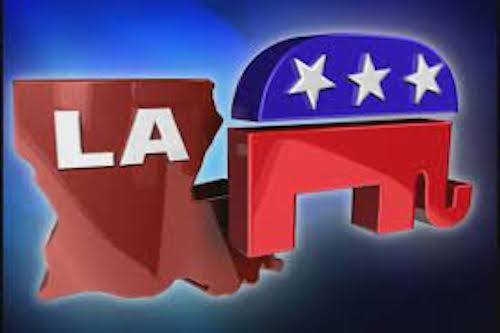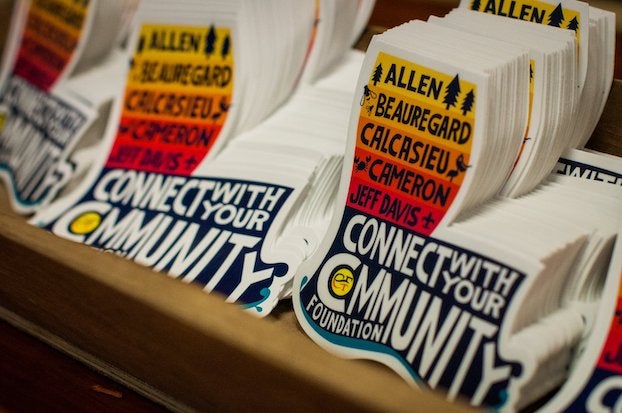Jim Beam column: Closed primaries favor parties
Published 6:44 am Saturday, January 13, 2024

- The Louisiana Republican Party leadership is behind GOP Gov. Jeff Landry's plan to try and return the state to closed party primary elections.(Image courtesy of KSLA News 12).
The Louisiana Republican Party doesn’t like the state’s open primary election system. That is apparently the reason GOP Gov. Jeff Landry wants lawmakers to switch back to party primaries at the special legislative session beginning Monday.
Louis Gurvich, chairman of the state Republican Party, confirmed that, according to a report in The Advocate.
“The party’s been arguing for it for decades,” Gurvich said. “Hopefully, soon we’ll have our fondest wish.”
Political parties like the control they exercise over party primaries, which Louisiana had over 48 years ago. The late-Gov. Edwin W. Edwards asked for open primaries for good reason.
Democrats had to fight through two primaries before 1975, and then take on Republicans and other candidates in the general election, many who were simply nominated at a convention held by members of their political party.
Democratic Party closed primaries were held on Nov. 6, 1971, and on Dec. 18, 1971, when Edwards became his party’s nominee. He had to face Republican Dave Treen in the general election.
Treen got 92% of the vote in the only Republican closed primary ever held in Louisiana. Edwards easily defeated Treen in the Feb. 1, 1972, general election.
In the open primary advocated by Edwin Edwards, all candidates, regardless of party, compete in one contest. If no one wins a majority, the top two candidates compete in a general election.
Open primaries have resulted in growth of a Republican Party that now holds all statewide elected offices and a supermajority in both the state House and Senate. That is because Democrats realized they could become Republicans and still be able to vote.
Robert Collins, a professor of public policy and urban studies at Dillard University in New Orleans, said Landry seems to believe a closed primary system will produce stronger and more conservative candidates.
Louisiana tried closed primaries for two congressional elections but reverted back to open primaries. Current state Sen. Cleo Fields, D-Baton Rouge, was also a state senator in 2006 and sponsored a return to closed primaries for congressional elections. The state Senate approved the bill 24-11 and the House vote was 57-37.
Fields’ legislation took effect for the 2008 and 2010 congressional elections. However, a bill by then-Rep. Hunter Greene, R-Baton Rouge, returned the state to open primaries in 2012. The House vote was 71-27 and the Senate vote was 31-5.
Greene said the closed primary system was costlier for the state and was more confusing for voters. He said the state could save more than $6 million every two years under the open primary system.
Although Greene ran afoul of his own party’s leadership, The Associated Press in 2010 said he was emboldened by the fact that so many Republicans had sided with him, over state GOP Chairman Roger Villere.
State Democratic Party Chairman Buddy Leach of Leesville and Lake Charles said open primaries allowed fringe candidates to get to the general election.
Opposition by Villere, Leach, and current GOP Chairman Gurvich makes it clear that political party leaders like more control over state elections. However, voters have a different view.
The Advocate reported that John Couvillon, a Baton Rouge-based analyst, and pollster who typically works with Republicans, suggested voters aren’t keen on closed primaries.
Of the 650 voters polled by Couvillon, 65% said they prefer the current open primary system while 56% said they opposed switching to closed primaries.
Steven Procopio, president of the nonpartisan Public Affairs Research Council, said going back to closed primaries risks disenfranchising independents and unleashing confusion at the ballot box for voters who are accustomed to the current open primary.
“We just know when we went through this before (2008 and 2010), there was a lot of confusion, some anger, and that’s why it didn’t stick around.”
Republican Lt. Gov. Billy Nungesser slammed the idea of returning to closed primaries, saying it could lead to more extreme candidates in both parties.
U..S. Sen. Bill Cassidy, R-Baton Rouge, has issued a statement on open primaries vs. closed political party primaries. Jim Beam’s Saturday column incorrectly said Cassidy couldn’t be reached for comment.
Gov. Jeff Landry has proposed returning to closed election primaries during a special legislative session beginning Monday.
U.S. Sen. Bill Cassidy said, “The polling is clear, 97% of people in Louisiana do not want to spend the $80-$90 million it would cost to hold more elections by closing the primaries,” Cassidy said. “They would rather spend it on roads/bridges, stopping crime, levees, etc. This is a very unpopular idea that was tried a few years ago and it caused massive confusion.”
Rick Ward, a former state senator from Port Allen who opposes the election change, in a letter to The Advocate said, “Instead of legislators feeling more responsible to the voters who elected them, they will have to contend with party bureaucrats who conduct party loyalty tests.”
Ward said the increased cost to hold elections over the next decade would be $90 million.
Going back to closed primaries is a terrible idea. Voters need to let their elected state senators and representatives know that open primaries give them, not political parties, control over state elections.





